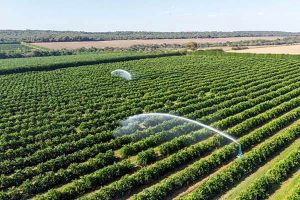Weed
weed, general term for any plant growing where it is not wanted. Ever since humans first attempted the cultivation of plants, they have had to fight the invasion by weeds into areas chosen for crops. Some unwanted plants later were found to have virtues not originally suspected and so were removed from the category of weeds and taken under cultivation.

Other cultivated plants, when transplanted to new climates, escaped cultivation and became weeds or invasive species. The category of weeds thus is ever changing, and the term is a relative one.
Weeds interfere with a variety of human activities, and many methods have been developed to suppress or eliminate them. These methods vary with the nature of the weed itself, the means at hand for disposal, and the relation of the method to the environment.
Usually for financial and ecological reasons, methods used on a golf course or a public park cannot be applied on rangeland or in the forest. Herbicide chemicals sprayed on a roadside to eliminate unsightly weeds that constitute a fire or traffic hazard are not proper for use on cropland. Mulching, which is used to suppress weeds in a home garden, is not feasible on large farms.
Weed control, in any event, has become a highly specialized activity. Universities and agricultural colleges teach courses in weed control, and industry provides the necessary technology. In agriculture, weed control is essential for maintaining high levels of crop production.
The many reasons for controlling weeds become more complex with the increasing development of technology. Plants become weeds as a function of time and place. Tall weeds on roadsides presumably were not problematic prior to the invention of the automobile.
However, with cars and increasing numbers of drivers on roads, tall weeds became dangerous, potentially obscuring drivers’ visibility, particularly at intersections. Sharp-edged grasses are nominal nuisances in a cow pasture; when the area is converted to a golf course or a public park, they become an actual nuisance.
Poison oak (Toxicodendron diversilobum) is rather a pleasant shrub on a sunny hillside in the open country; in a camp ground it is a definite health hazard. Such examples could be given ad infinitum to cover every aspect of agriculture, forestry, highway, waterway and public land management, arboretum, park and golf-course care, and home landscape maintenance.
Weeds compete with crop plants for water, light, and nutrients. Weeds of rangelands and pastures may be unpalatable to animals, or even poisonous; they may cause injuries, as with lodging of foxtails (Alopecurus species) in horses’ mouths; they may lower values of animal products, as in the cases of cockleburs (Xanthium species) in wool; they may add to the burden of animal care, as when horses graze in sticky tarweeds (Madia species). Many weeds are hosts of plant disease organisms.
Examples are prickly lettuce (Lactuca scariola) and sow thistle (Sonchus species) that serve as hosts for downy mildew; wild mustards (Brassica species) that host clubroot of cabbage; and saltbrush (Atriplex species) and Russian thistle, in which curly top virus overwinters, to be carried to sugar beets by leafhoppers. Many weeds are hosts of insect pests, and a number are invasive species.
Weed Control
Weed control is the prevention or control of unwanted and invasive plants. By effectively controlling unwanted plants, there is less competition for water, nutrients and light for beneficial and desirable vegetation.
What is best for weed control?
- Best For Gravel: RM43 43% Glyphosate Plus Weed Preventer.
- Most Customizable: Spectracide Weed & Grass Killer.
- Best For Multiple Weed Types: Roundup All-in-One Weed Killer For Lawns.
- Best For Flower Beds: Ortho GroundClear Weed & Grass Killer.
- Best Vinegar Weed Killer: Green Gobbler Weed & Grass Killer
- Prevention. The most important factor in overall weed control is to prevent weeds from developing seed and perpetuating the weed problem. …
- Cultivation. …
- Cover Crops. …
- Mowing. …
- Flaming. …
- Hand-removal. …
- Mulches. …
- Soil Solarization.
What kills weeds permanently?
What are two types of weed control?
What is importance of weed?

